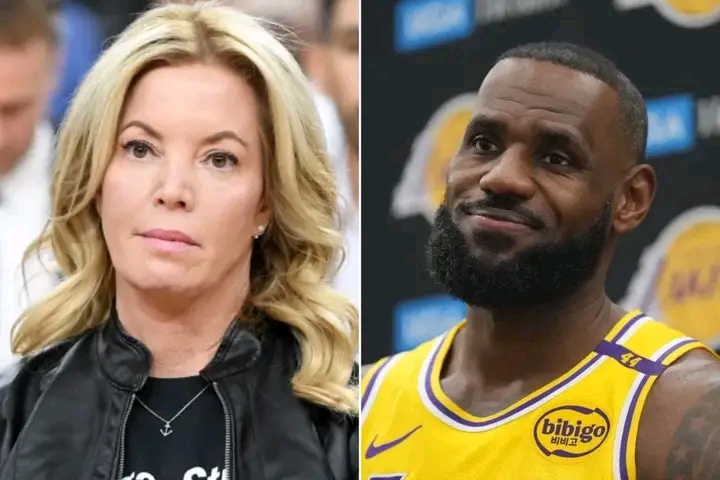In 1979, Dr. Jerry Buss made a bold investment that would not only reshape professional basketball but transform the entire business of sports entertainment. For $67.5 million, he purchased the Los Angeles Lakers, the Los Angeles Kings, and the Forum from Jack Kent Cooke. The deal was largely viewed as a gamble at the time—Buss, a former chemist turned real estate magnate, was betting on the allure of Los Angeles, the rising spectacle of the NBA, and his own vision for turning basketball games into Hollywood-caliber productions.
Forty-six years later, that bet has paid off in record-shattering fashion.
In a stunning and unprecedented move, the Buss family has sold the Los Angeles Lakers for a staggering $10 billion, marking the largest sale of a professional sports franchise in history. The deal, finalized earlier this week, closes the chapter on a dynastic run not just on the court but in ownership. From Magic and Kareem to Kobe and Shaq to LeBron and Anthony Davis, the Lakers have remained at the heart of the basketball universe—powered, directed, and often shielded by the Buss family.
This moment is not just a financial headline. It’s the end of an era.
When Jerry Buss bought the Lakers in 1979, they were far from the global juggernaut they are today. They were talented, yes—with a rookie named Earvin “Magic” Johnson joining a team anchored by Kareem Abdul-Jabbar—but the team was still battling for local attention in a city dominated by the Dodgers and a Hollywood culture that hadn’t yet fully embraced the NBA.
Buss changed that instantly. He saw the potential to turn Lakers games into events. He added celebrity courtside seats, Laker Girls, and in-game entertainment that redefined what it meant to attend a basketball game. He hired Pat Riley, empowered Magic Johnson, and leaned into the city’s flair and drama.
The result? The birth of Showtime. The Lakers dazzled with fast breaks, no-look passes, and effortless charisma. They won five titles in the 1980s and became the most glamorous team in American sports. But more than that, Buss created a model that teams would try to replicate for decades: sports as an extension of entertainment, and the owner as both financier and cultural architect.
Buss’s success wasn’t just about spectacle. He was also a shrewd basketball mind. He knew when to let his stars shine, and when to intervene. Under his stewardship, the Lakers became synonymous with excellence. He hired great general managers like Jerry West and Mitch Kupchak, and later embraced analytics and innovation before many others.
When Jerry Buss passed away in 2013, he left the franchise to his six children—each given a percentage, but with Jeanie Buss as the controlling owner and governor of the team. Jeanie, already a respected executive within the organization, became the face of the second-generation Buss ownership.
She inherited both a dynasty and a burden. The Lakers were floundering in the post-Kobe years, their cap space constrained and their young core unproven. But Jeanie remained patient. In 2018, she and GM Rob Pelinka landed the biggest fish in modern free agency: LeBron James. Two years later, with Anthony Davis by his side, LeBron delivered the franchise its 17th championship in the Orlando bubble—tying the Boston Celtics for the most all-time.
Throughout her tenure, Jeanie Buss walked the tightrope between upholding her father’s legacy and modernizing the team for a new era. She made tough decisions, including parting ways with her brother Jim Buss, who had overseen the basketball side during a rocky period. She welcomed back Phil Jackson in a consulting role and leaned heavily on the Lakers’ unmatched brand power to maintain relevance even when wins were scarce.
What makes the $10 billion sale so staggering isn’t just the number—it’s what it represents. The NBA, once a struggling league reliant on tape-delay broadcasts, has grown into a global powerhouse. Franchises are not just sports teams anymore; they are international brands, content factories, and real estate empires.
In recent years, NBA team valuations have soared. The Phoenix Suns were sold for $4 billion in 2022. The Milwaukee Bucks saw a partial ownership stake sold at a $3.5 billion valuation in 2023. But the Lakers were always the crown jewel. With their 17 championships, Hollywood location, global reach, and all-time legends, the Lakers are arguably the most valuable basketball franchise in the world.
The $10 billion figure reflects not just on-court success but also lucrative media deals, sponsorships, arena revenue from Crypto.com Arena, merchandise sales, and the team’s international footprint. The Lakers have one of the largest global fanbases in all of sports—rivaled only by clubs like Real Madrid, Manchester United, or the New York Yankees.
Sources close to the deal say multiple tech billionaires and global investment groups were in the bidding, with the winning offer coming from a consortium led by a Silicon Valley entrepreneur with interests in AI, sports tech, and entertainment media. The new owners reportedly plan to enhance the Lakers’ brand across digital platforms, invest in youth development globally, and even explore international exhibitions and events beyond preseason games.
Despite the eye-popping sale figure, the decision to sell was not easy.
The Buss family has been synonymous with the Lakers for nearly five decades. They’ve won 11 NBA titles since 1980 under their leadership. They’ve survived the drama of superstar breakups, the pain of rebuilding years, and the pressure of living up to an almost mythological standard.
Jeanie Buss, in an emotional press conference, confirmed the sale and explained the motivation behind it.
“We have loved this team with all our hearts. My father’s dream was to build something that would outlast him, and we believe he accomplished that,” she said. “But we also know that the NBA is changing, the business is evolving, and we wanted to make this decision on our terms—with the right partners, the right time, and the right legacy in place.”
She thanked the fans, the players, the coaches, and the city of Los Angeles for “making this journey magical,” and promised that the Buss family would always remain part of the Lakers’ story—even if not in the owner’s suite.
Indeed, several family members are expected to stay on in advisory or ambassadorial roles. There are also reports that part of the $10 billion sale includes future naming rights to a training facility that could bear the Buss name in perpetuity
What Comes Next
The new ownership group inherits not just a team, but an institution. And with that comes immense expectations.
The Lakers are currently in a competitive but transitional phase. LeBron James is nearing the end of his career. Anthony Davis remains the cornerstone, but questions loom about durability and roster construction. The Lakers have young talent, cap flexibility, and draft assets—but they also have a ticking clock and one of the most demanding fanbases in sports.
Will the new owners be patient builders or aggressive players? Will they embrace the team’s Hollywood roots or try to usher in a new era of data-driven management? Will they try to emulate the Buss playbook or blaze their own trail?
What is clear is this: The stakes have never been higher. The $10 billion price tag ensures global attention. Every move, every hire, every signing will be viewed through the lens of that record-breaking valuation.
For Lakers fans, the moment is bittersweet. The team remains, the history is intact, but a chapter has closed. The Buss family’s era—defined by vision, loyalty, risk-taking, and unforgettable basketball—is now part of NBA lore.
Yet if Jerry Buss taught the world anything, it’s that legacies don’t end with signatures on a sales contract. They echo in every banner, every chant of “M-V-P,” and every child who picks up a basketball dreaming of purple and gold.
From $67.5 million to $10 billion, the journey of the Lakers under the Buss family isn’t just a business success—it’s one of the greatest stories in sports. And while the names may change, the standard set by Dr. Buss will remain the north star in Los Angeles.

